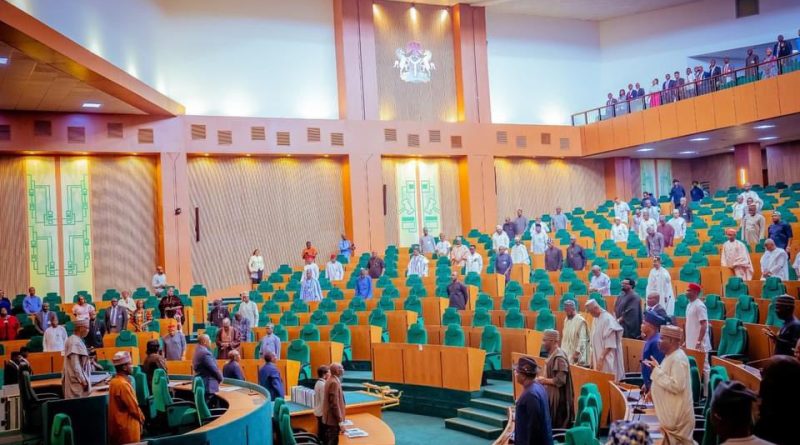Reps seek new law to protect local refineries
In a renewed push to strengthen domestic refining capacity and end the country’s dependence on imported petroleum products, the House of Representatives, on Monday, announced plans to introduce new legislation to guarantee that Nigeria’s local refineries receive crude oil supply before exports.
Speaker of the House, Abbas Tajudeen, disclosed this while declaring open the Inaugural Downstream Week organised by the House Committee on Petroleum Resources (Downstream) in Abuja.
The two-day multi-stakeholder event, themed “Celebrating Our Success, Confronting Our Challenges, and Finding Solutions for the Petroleum Downstream Sector,” brings together policymakers, regulators, operators, and investors to deliberate on sustainable reforms for the industry.
Mr Tajudeen, represented by his deputy, Benjamin Kalu, said the revival of the downstream industry under President Bola Tinubu’s Renewed Hope Agenda, particularly the operationalisation of the Dangote Refinery, marks a turning point in Nigeria’s drive for energy self-sufficiency.
“The anticipated emergence of other indigenous refineries underlines the need for the National Assembly to continue creating a functional environment for industries to thrive,” he said.
He stressed that the take-off of the Dangote Refinery and other indigenous projects underscores the need for the National Assembly to create a more enabling environment for local industries to thrive.
Mr Tajudeen noted that the landmark Petroleum Industry Act (PIA) 2021 has redefined the governance and fiscal framework of the oil industry, transforming the Nigerian National Petroleum Company Limited (NNPCL) into a profit-driven entity and restoring investor confidence through stronger regulation by the NMDPRA and NUPRC.
He said the House remains committed to crafting evidence-based legislation and providing effective oversight to ensure that the downstream sector contributes to “a more secure, efficient, and resilient economy.”
Refinery protection bill, local feedstock priority on the way
In his address, the House Committee on Petroleum Resources (Downstream) Chairman, Ikenga Ugochinyere, outlined a series of legislative initiatives to consolidate recent gains in the sector.
He said the committee would pursue a Refinery Protection and Promotion Bill to classify local refineries as strategic national assets, guaranteeing them the first right of refusal on crude oil allocations.
Other proposals include streamlining regulatory processes, removing bureaucratic delays, and ensuring uninterrupted operations at modular and conventional refineries.
“One of the most commendable policy actions in recent times is the Nigerian Upstream Petroleum Regulatory Commission’s (NUPRC) enforcement of the Domestic Crude Oil Supply Obligation (DCSO) on all producers in Nigeria,” Mr Ugochinyere said.
He emphasised that nations grow by empowering their domestic industries to produce and compete, a vision consistent with the Tinubu administration’s industrialisation goals.
Local capacity expanding, investor confidence rising
Mr Ugochinyere highlighted what he described as “a historic transformation” in Nigeria’s downstream sector, citing expanding refining capacity and industrial growth across the energy value chain.
According to him, Indorama Petrochemicals has expanded its urea and fertiliser production to 2.8 million metric tonnes per annum, while Waltersmith Refinery in Imo State is scaling up from 5,000 to 50,000 barrels per day.
Other indigenous refineries, including OPAC Refinery in Delta, and new projects in Edo and Rivers States, are advancing steadily. With its 650,000 barrels per day capacity, the Dangote Refinery now stands as Africa’s largest and has redefined the regional refining landscape.
Mr Ugochinyere added that over $13 billion in upstream investments were recorded in 2024 alone, signalling renewed investor confidence in Nigeria’s energy sector.
READ ALSO: Reps constitute committee to probe $18bn spent on non-functional Nigerias refineries
Labour relations and industry stability
While applauding reforms by the NNPCL and regulatory agencies, the committee chairman stressed the need for industrial harmony, noting recent labour disputes involving Dangote Refinery and oil sector unions.
He urged labour and operators to prioritise dialogue and mutual respect in resolving disagreements.
“No reform can succeed without industrial harmony,” he said. “Our shared goal must be to protect jobs, sustain businesses, and promote Nigeria’s economic sovereignty.”
He warned that compliance with safety, tax, and environmental standards remains a “patriotic duty,” not an option, for operators in the downstream sector.

